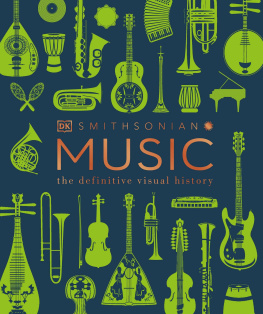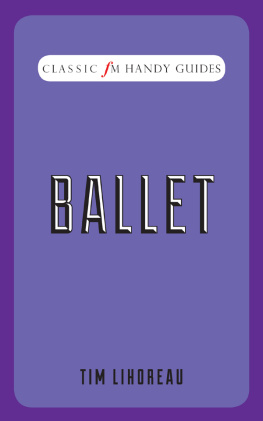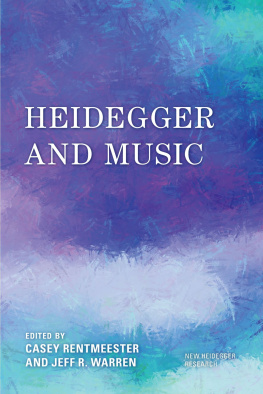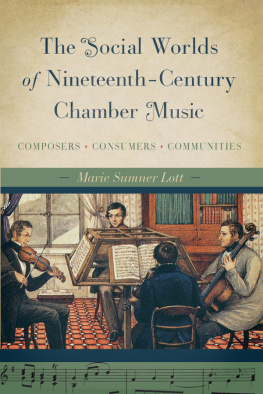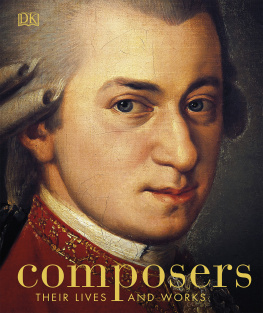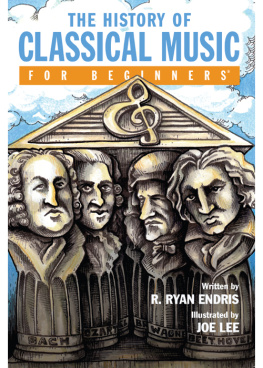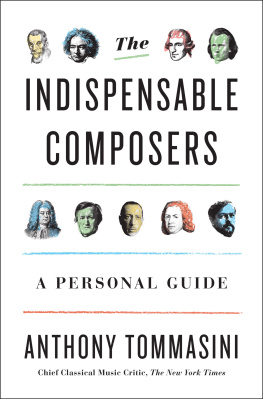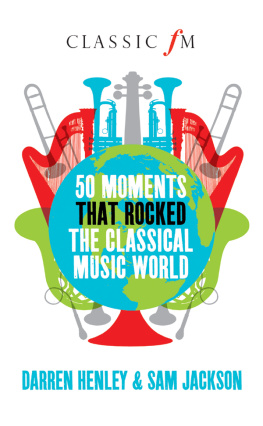Harriette Brower - The Worlds Great Men Of Music
Here you can read online Harriette Brower - The Worlds Great Men Of Music full text of the book (entire story) in english for free. Download pdf and epub, get meaning, cover and reviews about this ebook. year: 2010, publisher: Andrews UK, genre: Non-fiction. Description of the work, (preface) as well as reviews are available. Best literature library LitArk.com created for fans of good reading and offers a wide selection of genres:
Romance novel
Science fiction
Adventure
Detective
Science
History
Home and family
Prose
Art
Politics
Computer
Non-fiction
Religion
Business
Children
Humor
Choose a favorite category and find really read worthwhile books. Enjoy immersion in the world of imagination, feel the emotions of the characters or learn something new for yourself, make an fascinating discovery.

- Book:The Worlds Great Men Of Music
- Author:
- Publisher:Andrews UK
- Genre:
- Year:2010
- Rating:5 / 5
- Favourites:Add to favourites
- Your mark:
- 100
- 1
- 2
- 3
- 4
- 5
The Worlds Great Men Of Music: summary, description and annotation
We offer to read an annotation, description, summary or preface (depends on what the author of the book "The Worlds Great Men Of Music" wrote himself). If you haven't found the necessary information about the book — write in the comments, we will try to find it.
The Worlds Great Men Of Music — read online for free the complete book (whole text) full work
Below is the text of the book, divided by pages. System saving the place of the last page read, allows you to conveniently read the book "The Worlds Great Men Of Music" online for free, without having to search again every time where you left off. Put a bookmark, and you can go to the page where you finished reading at any time.
Font size:
Interval:
Bookmark:
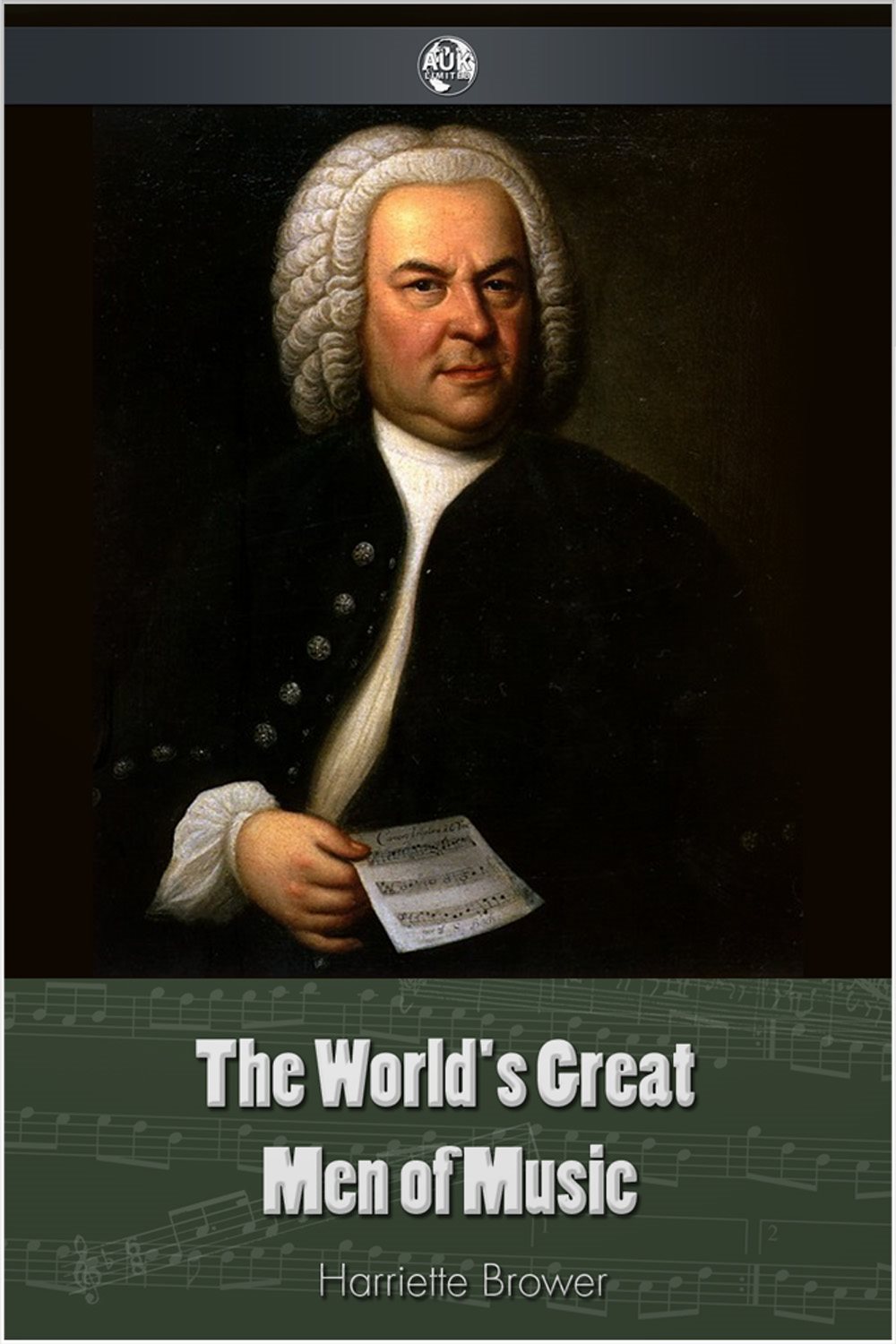
THE WORLDS
GREAT MEN OF MUSIC
By
Harriette Brower
This electronic version published in 2010 by
Andrews UK Limited
www.andrewsuk.com
This edited version, including layout, typography, additions to text, cover artwork and other unique factors is copyright Andrews UK 2010. No part of this digital publication may be reproduced, stored in a retrieval system or transmitted in any form or by any means electronic, mechanical, photocopying, recording or otherwise without written permission of the copyright owner.
The preparation of this volume began with a period of delightful research work in a great musical library. As a honey-bee flutters from flower to flower, culling sweetness from many blossoms, so the compiler of such stories as these must gather facts from many sources - from biography, letters, journals and musical history. Then, impressed with the personality and individual achievement of each composer, the author has endeavored to present his life story.
While the aim has been to make the story-sketches interesting to young people, the author hopes that they may prove valuable to musical readers of all ages. Students of piano, violin or other instruments need to know how the great composers lived their lives. In every musical career described in this book, from the old masters represented by Bach and Beethoven to the musical prophets of our own day, there is a wealth of inspiration and practical guidance for the artist in any field. Through their struggles, sorrows and triumphs, divine melody and harmony came into being, which will bless the world for all time to come.
To learn something of the life and labors of Palestrina, one of the earliest as well as one of the greatest musicians, we must go back in the worlds history nearly four hundred years. And even then we may not be able to discover all the events of his life as some of the records have been lost. But we have the main facts, and know that Palestrinas name will be revered for all time as the man who strove to make sacred music the expression of lofty and spiritual meaning.
Upon a hoary spur of the Apennines stands the crumbling town of Palestrina. It is very old now; it was old when Rome was young. Four hundred years ago Palestrina was dominated by the great castle of its lords, the proud Colonnas. Naturally the town was much more important in those days than it is to-day.
At that time there lived in Palestrina a peasant pair, Sante Pierluigi and his wife Maria, who seem to have been an honest couple, and not grindingly poor, since the will of Santes mother has lately been found, in which she bequeathed a house in Palestrina to her two sons. Besides this she left behind a fine store of bed linen, mattresses and cooking utensils. Maria Gismondi also had a little property.
To this pair was born, probably in 1526, a boy whom they named Giovanni Pierluigi, which means John Peter Louis. This boy, from a tiniest child, loved beauty of sight and sound. And this is not at all surprising, for a child surrounded from infancy by the natural loveliness and glory of old Palestrina, would unconsciously breathe in a sense of beauty and grandeur.
It was soon discovered the boy had a voice, and his mother is said to have sold some land she owned to provide for her sons musical training.
From the rocky heights on which their town was built, the people of Palestrina could look across the Campagna - the great plain between - and see the walls and towers of Rome. At the time of our story, Saint Peters had withstood the sack of the city, which happened a dozen years before, and Bramantes vast basilica had already begun to rise. The artistic life of Rome was still at high tide, for Raphael had passed away but twenty years before, and Michaelangelo was at work on his Last Judgment.
Though painting and sculpture flourished, music did not keep pace with advance in other arts. The leading musicians were Belgian, Spanish or French, and their music did not match the great achievements attained in the kindred art of the time - architecture, sculpture and painting. There was needed a new impetus, a vital force. Its rise began when the peasant youth John Peter Louis descended from the heights of Palestrina to the banks of the Tiber.
It is said that Tomasso Crinello was the boys master; whether this is true or not, he was surely trained in the Netherland manner of composition.
The youth, whom we shall now call Palestrina, as he is known by the name of his birthplace, returned from Rome at the age of eighteen to his native town, in 1544, as a practising musician, and took a post at the Cathedral of Saint Agapitus. Here he engaged himself for life, to be present every day at mass and vespers, and to teach singing to the canons and choristers. Thus he spent the early years of his young manhood directing the daily services and drumming the rudiments of music into the heads of the little choristers. It may have been dry and wearisome labor; but afterward, when Palestrina began to reform the music of the church, it must have been of great advantage to him to know so absolutely the liturgy, not only of Saint Peters and Saint John Lateran, but also that in the simple cathedral of his own small hill-town.
Young Palestrina, living his simple, busy life in his home town, never dreamed he was destined to become a great musician. He married in 1548, when he was about twenty-two. If he had wished to secure one of the great musical appointments in Rome, it was a very unwise thing for him to marry, for single singers were preferred in nine cases out of ten. Palestrina did not seem to realize this danger to a brilliant career, and took his bride, Lucrezia, for pure love. She seems to have been a person after his own heart, besides having a comfortable dowry of her own. They had a happy union, which lasted for more than thirty years.
Although he had agreed to remain for life at the cathedral church of Saint Agapitus, it seems that such contracts could be broken without peril. Thus, after seven years of service, he once more turned his steps toward the Eternal City.
He returned to Rome as a recognized musician. In 1551 he became master of the Capella Giulia, at the modest salary of six scudi a month, something like ten dollars. But the young chapel master seemed satisfied. Hardly three years after his arrival had elapsed, when he had written and printed a book containing five masses, which he dedicated to Pope Julius III. This act pleased the pontiff, who, in January, 1555, appointed Palestrina one of the singers of the Sistine Chapel, with an increased salary.
It seems however, that the Sistine singers resented the appointment of a new member, and complained about it. Several changes in the Papal chair occurred at this time, and when Paul IV, as Pope, came into power, he began at once with reforms. Finding that Palestrina and two other singers were married men, he put all three out, though granting an annuity of six scudi a month for each.
The loss of this post was a great humiliation, which Palestrina found it hard to endure. He fell ill at this time, and the outlook was dark indeed, with a wife and three little children to provide for.
But the clouds soon lifted. Within a few weeks after this unfortunate event, the rejected singer of the Sistine Chapel was created Chapel Master of Saint John Lateran, the splendid basilica, where the young Orlandus Lassus had so recently directed the music. As Palestrina could still keep his six scudi pension, increased with the added salary of the new position, he was able to establish his family in a pretty villa on the Coelian Hill, where he could be near his work at the Lateran, but far enough removed from the turmoil of the city to obtain the quiet he desired, and where he lived in tranquillity for the next five years.
Font size:
Interval:
Bookmark:
Similar books «The Worlds Great Men Of Music»
Look at similar books to The Worlds Great Men Of Music. We have selected literature similar in name and meaning in the hope of providing readers with more options to find new, interesting, not yet read works.
Discussion, reviews of the book The Worlds Great Men Of Music and just readers' own opinions. Leave your comments, write what you think about the work, its meaning or the main characters. Specify what exactly you liked and what you didn't like, and why you think so.

